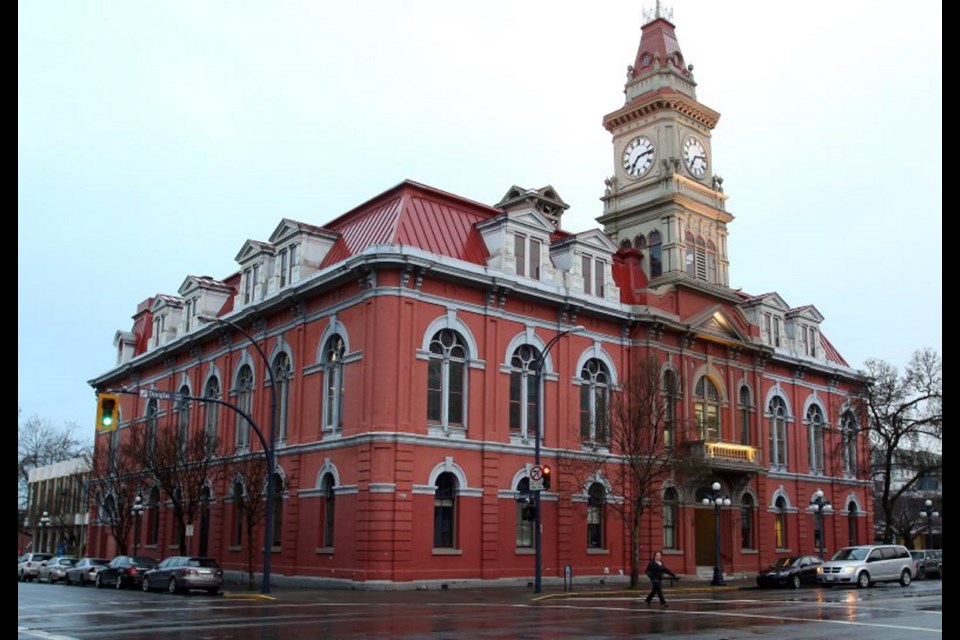 The problem with deferred property taxes, the Grumpy Taxpayer$ say, is they take the pressure off politicians to keep a lid on spending.
The problem with deferred property taxes, the Grumpy Taxpayer$ say, is they take the pressure off politicians to keep a lid on spending.
To which homeowners reply: I can defer my property taxes?
Yes, yes you can, and possibly at a profit, if you’re over age 55, or have lost your spouse, or have a disability.
The Grumpy Taxpayer$ (yes, that’s a dollar sign) of Greater Victoria is an advocacy group dedicated to lower taxes and more accountable municipal government. It has just released figures — the result of a freedom-of-information filing with the B.C. Finance Ministry — showing 6,339 homeowners in the capital region’s 13 municipalities deferred $22.2 million in taxes last year.
While the deferral program is an excellent initiative for many seniors, it has the unintended consequence of allowing politicians to beat the heat they would normally take when jacking up spending, the Taxpayer$ argue. “Big tax increases are out of sight and out of mind for many homeowners,” the group’s chairman, Stan Bartlett, said in a statement. “When the big bill isn’t payable for 10 or 20 years, why bother growling at your councillor or city hall about excessive taxes?”
That might be a secondary consideration to a lot of homeowners, though. They might be more interested in the potential financial advantages of the program, which allows them to put off paying their taxes until they sell or refinance.
The program is meant to provide relief to those struggling to cope with the taxes on their homes.
The way it works is that the provincial government pays the property taxes to local government on behalf of the homeowner, who is charged an ultra-low interest rate until the money is repaid to the province. It's particularly helpful to seniors who live in houses that have inflated in value, but who don’t have the income to match their rising assessments.
But even those who have no problem paying their taxes are jumping on the idea, figuring the amount they make investing the money will outstrip the low interest charged by the province.
The regular deferral program applies to the main residence of people aged 55 or older, or who are disabled, or who are widows or widowers, and who have equity of at least 25 per cent of the home’s value. At the current interest rate — .85 per cent — a property tax bill of $3,500 would incur a charge of $30 annually.
Parents of kids under age 18 may also defer taxes, but at a less-attractive interest rate of 2.85 per cent.
A relatively small number of people use the program right now. In the capital region, 6,339 did so in 2015, a number roughly equal to all the residences in Fairfield, the Grumpy Taxpayer$ say. That included 2,089 deferrals worth $7.4 million in Saanich, 1,190 worth $4 million in Victoria and 701 worth $3.5 million in Oak Bay. There’s no drawback for municipalities. Their tax revenue remains the same — it just comes from the province, not the homeowner.
The program’s uptake is low enough that it doesn’t have much impact on the province, but the Grumpy Taxpayer$ say participation is growing.
Some people aren’t happy about that, figuring there should be a means test that limits the deferrals to those who need them the most.
From a purely financial standpoint, it makes sense to defer your taxes if you can earn more investing the money than the province charges in interest charged by the province, says Bill Camden, a chartered professional accountant and former mayor of View Royal. But he thinks some seniors, having worked all their lives to pay off their homes, might have trouble clearing the psychological barrier of assuming new debt, or of owing the government.
Camden is warier of the part of the program that applies to young families with children.
“That one seems to be a bit more dangerous.” The interest rate is higher, as is the temptation to pile up debt for a long period, which could mean trouble down the road.
As for the Grumpy Taxpayer$’ contention that deferring taxes means less criticism for politicians who hike spending, the former mayor is doubtful. “I don’t really buy that argument. You get heat about tax increases from everywhere.”



